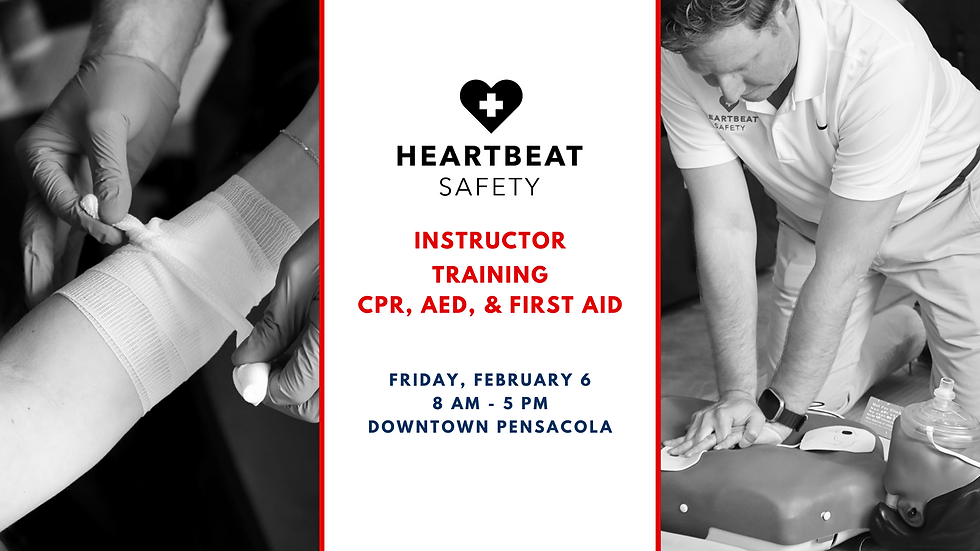Ensuring Safety and Security: The Importance of Elderly Homes Having an AED
- Feb 13, 2024
- 2 min read
As our loved ones age, their health and well-being become paramount concerns. In times of medical emergencies, having access to life-saving equipment can make all the difference. In this blog post, we'll explore the critical importance of elderly individuals having an Automated External Defibrillator (AED) in their homes.
Understanding the Risks:
Aging brings with it an increased risk of cardiovascular issues, including cardiac arrest. According to the American Heart Association, the risk of sudden cardiac arrest (SCA) rises with age, with individuals over 65 being particularly vulnerable. Given these statistics, it's essential for elderly individuals and their caregivers to be prepared for such emergencies.
Immediate Response Saves Lives:
In cases of sudden cardiac arrest, every minute without intervention significantly reduces the chances of survival. Having an AED readily available at home allows for immediate response in the event of an emergency. With simple, user-friendly operation, even untrained individuals can effectively use an AED to administer life-saving shocks until professional medical help arrives.

Peace of Mind for Caregivers:
For caregivers looking after elderly loved ones, the presence of an AED in the home offers invaluable peace of mind. Knowing that they have the tools to respond quickly and effectively in the event of a cardiac emergency can alleviate anxiety and ensure a sense of security for both the caregiver and the individual being cared for.
Accessible and Easy to Use:
Modern AEDs are designed to be intuitive and user-friendly, with clear instructions and voice prompts guiding users through the resuscitation process. This accessibility makes them suitable for use by individuals of all ages, including the elderly. With minimal training, seniors and their caregivers can confidently operate an AED when every second counts.
Taking Preventative Measures:
While it's crucial to have an AED on hand for emergencies, it's also essential to take preventative measures to reduce the risk of cardiac events. Encouraging regular physical activity, maintaining a healthy diet, and attending routine medical check-ups can all contribute to overall heart health and reduce the likelihood of cardiac emergencies.
Empowering Elderly Individuals:
Having an AED in the home empowers elderly individuals to take control of their health and safety. It provides them with the means to respond decisively in the face of a cardiac emergency, potentially saving their own lives or the lives of their loved ones.
Conclusion:
In conclusion, the presence of an AED in the homes of elderly individuals is not just a precautionary measure – it's a lifeline. It's a proactive step towards ensuring the safety and security of our aging population, providing them with the tools they need to face medical emergencies with confidence and resilience.
Take Action Today:
If you have elderly loved ones at home, consider investing in an AED for their safety. Contact Heartbeat Safety at [hello@heartbeatsafety.org] or go to Heartbeat Safety Safety Equipment to learn more about AED options and how you can make your home a safer place for your family members.
Empower your loved ones and safeguard their well-being with an AED – because every heartbeat matters.




Comments